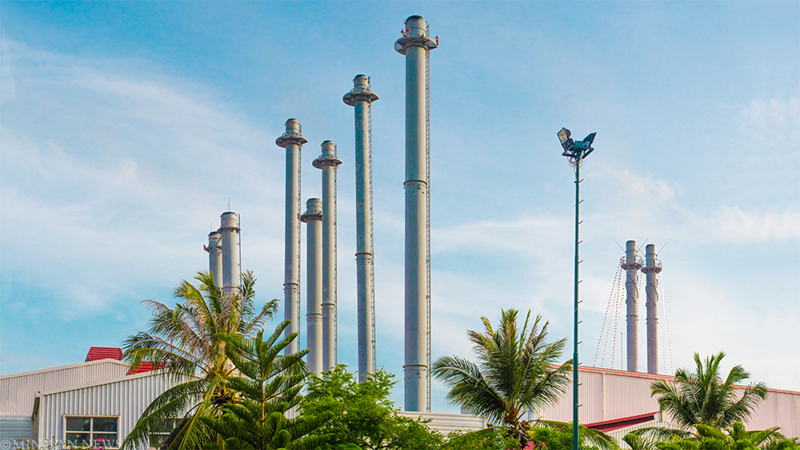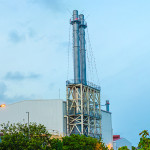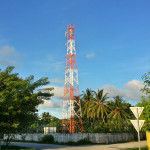Shops in Addu City have hiked the price of frozen goods and reduced business hours due to losses caused by the government’s decision to cease electricity subsidies to businesses in the atolls.
The majority of businesses in the southernmost atoll voted to increase the price of frozen goods by 15 percent and other items by five percent at a meeting organised by the city council last night.
“There were around 145 businesses in the meeting last night. More than 90 percent agreed to increase the prices,” said Mohamed Luthfy, assistant director at the council.
The government’s decision to discontinue electricity subsidies to businesses sparked protests across the country in April with shops, cafés and restaurants shutting down in protest. Electricity bills doubled, and in some case tripled, when the subsidy was cut for more than 5,700 businesses.
The Addu City business owners also decided to shorten business hours from 6:00am to 6:00pm and to keep shops closed at night.
However, neither decision will be implemented immediately as businesses from Hulhumeedhoo could not attend the meeting.
“So nothing will be implemented until a vote is taken amongst businesses of Hulhumeedhoo,” Luthfy said.
Earlier this month, grocery shops in Haa Alif Ihavandhoo increased prices of goods due to higher electricity prices. Owners also decided to keep shops closed from 6:00pm to 8:00pm.
Electricity charges in Addu and Fuvahmulaku are 37 percent higher than the capital and up to 72 percent higher in Haa Alif, Haa Dhaalu and Shaviyani Atoll.
The state-owned electricity provider to the atolls, Fenaka Corporation, has said its hands are tied as it is only implementing the government’s policy. Presenting the 2015 budget, the finance minister announced plans to target subsidies to the poor in an attempt to reduce expenditure.
Renewable energy
At last night’s meeting, Addu City businesses also discussed the possibility of using solar panels to generate electricity.
“We’ve negotiated with Fenaka Corporation to come to a solution but with no results. We prefer solar panels, so do the businesses,” Luthfy said.
Fenaka’s expenses on the island of Thinadhoo in Gaaf Dhaal atoll was halved after the implementation of a 2008 World Bank renewable energy pilot project.
Thinadhoo’s hospital, two public schools, powerhouse and mosque are powered by solar panels.
However, the Thinadhoo island council has said that the government’s utility company was benefiting more from the project than the island’s residents.
“Fenaka Corporations expenses have been reduced in half but still the price of electricity is has not gone down. In fact it has gone much higher with the subsidy cuts,” said island councillor Saudh Ali.
Businesses in the northern hub of Kulhudhufushi are meanwhile expected to take similar measures following the subsidy cuts.
“We are waiting for the electricity bills for the public to be issued. This is government tyranny and we will not wait in vain,” said Adam Shareef, a member of a steering committee formed by businesses in the island to negotiate with the government.
In early May, Fenaka cut off electricity to several businesses, including a private hospital in Addu City, when owners refused to pay bills.
Four businesses lodged a complaint with a magistrate court over power cuts. The court initially issued a stay order, but a new judge appointed to oversee the case overturned the ruling and said Fenaka was authorised to cut electricity if businesses fail to pay bills.
Last week, Fenaka blamed arsonists for a fire at its offices in Addu City, which two weeks after a group of people threw rocks and shattered windows at the home of Fenaka’s regional director Abdulla Zuhair.
A retail shop owner in Addu City told Minivan News that the attacks might have been a result of “desperation” due to the unresolved dispute over electricity prices between the power company and local businesses.







The businesses of Addu should get together and form a way of providing power for themselves and even residential houses. They can escape the slavery imposed on them by the regime in Male and this can only be seen as a vindictive attempt to humiliate the businesses of Addu (as well as elsewhere).
The reason is purely political. Yameen is trying to do to Addu businesses what he did to Gasim.
To those in Addu who voted for PPM.
"How's that knife in your back?"
To those in Addu who were forced to vote for PPM or suffer retaliation from their gangs.
We feel your pain. Let us fight together to overthrow the enemy.